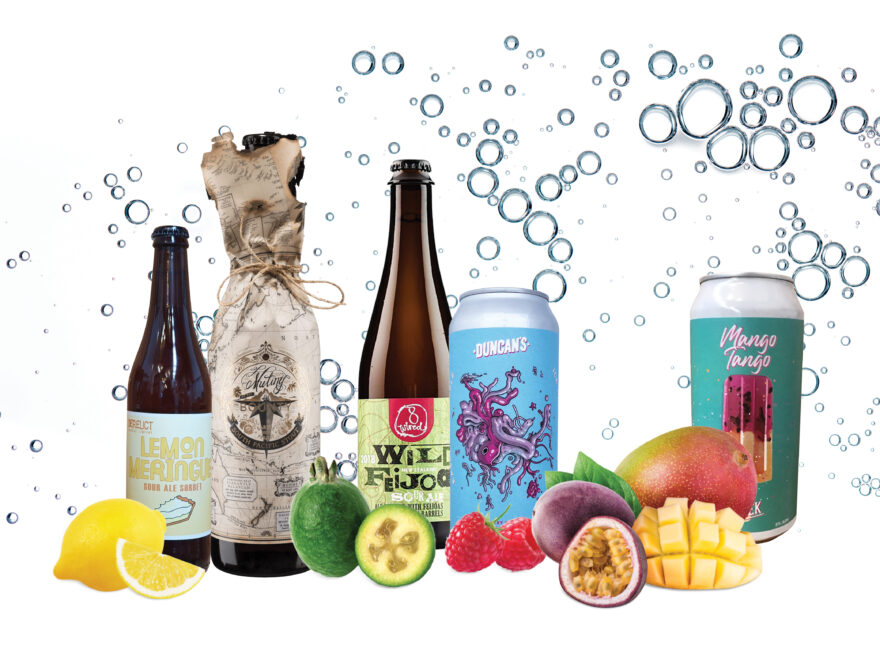Are Partners that go way back into Human History.
Before humans settled into agriculture life, with the specific purpose of growing grain in order to make alcohol, beer was made from whatever fermentable products could be found.
Mostly depending on what continent the brewer lived. Corn, sorghum, honey, fruit – anything that could be converted into ethanol was used.
Eventually modern beer settled on malt and hops as the two main ingredients. But fruit has always been there at the edges.
In Belgium it never went away. Kriek, made with cherries, or Framboise, with raspberries, are deeply ingrained in that country’s beer culture.
Even in Germany, with the so-called “purity law” the classic way to have a Berliner Weisse (a sour wheat beer) is with the addition of a sweet syrup, either almond-flavoured woodruff or raspberry.
So, the modern trend of making fruit-flavoured beers is nothing new at all.
We’ve long had berries added to stouts for a flavour twist while breadfruit and plantain are two more esoteric ingredients in Garage Project Mutiny on the Bounty stout.
Occasionally fruit will pop up in a traditional IPA – usually grapefruit, passionfruit or yuzu, all fruits that riff off the kind of flavour hops bring to beer.
But it’s in the sour beers where fruit can really express itself.
Fruited sours come in a range of guises. There’s the barrel-aged variety defined by 8 Wired Wild Feijoa Ale in which whole feijoas are stuffed into a barrel of wild-ferment beer and aged for a year. The latest edition, the 2021 vintage, is due out soon.
Fruited kettle sours are more common (the beers are pre-soured with the same bacteria that makes yoghurt) and most Kiwi breweries will have a passionfruit sour, a raspberry sour, a yuzu sour etc.
But what’s really tantalising tastebuds are icecream sours. This “style” was spear-headed by Duncan’s Raspberry Ripple. The Paraparaumu brewery uses a lot of lactose for a creamy mouthfeel and the addition of vanilla on top of buckets of fruit pulp creates refreshing sweet-sour drop that sometimes feels like drinking fruit juice rather than beer.
Another stunning example is Derelict Lemon Meringue. Described as a smoothie sour, it’s made with lactose, vanilla, fresh lemon zest and fresh lemon juice. As you’d expect, it tastes just like lemon meringue.
Deep Creek took things one step further when they became the first brewery to brew beers with fruit added after fermentation. Overseas these beers are controversial for their propensity to explode, as the fruit is fermented after packaging and the increased CO2 blows the can open. Breweries were criticised for putting the pressure on buyers to keep these beers cold enough to ensure the yeast stayed dormant and the cans intact.
Deep Creek ensured none of theirs would explode by pasteurising the beer to kill the yeast (an expensive process that most small breweries can’t afford). The pick of the bunch is Deep Creek Mango Tango which delivers huge passionfruit and mango taste, reminiscent of fruit juice.
Michael Donaldson
Freelance Writer

